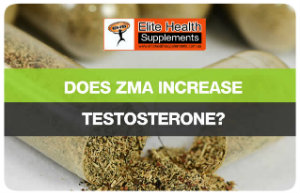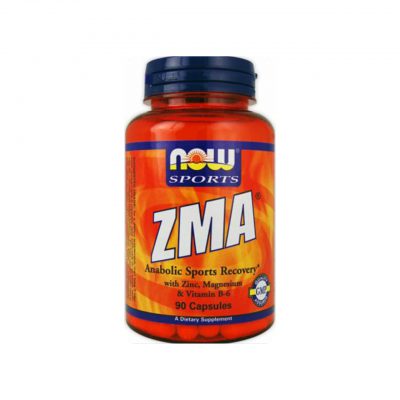Nutrition
Does ZMA increase testosterone?
Low testosterone levels in men can result in muscle deterioration, diminished sex drive, depression, low energy, infertility and loss of hair among various other consequences. Slightly elevated testosterone levels on the other hand, will promote muscle growth, energy, sex drive and an overall sense of wellbeing.
Low testosterone and mineral deficiencies
There are many pharmaceuticals available for the treatment of low testosterone. Unfortunately, the majority of them cause side effects; and rather than working with your body, in many ways they can work against it. For some men that suffer from low testosterone, there may be a very specific cause, like a mineral deficiency. This is why it is important to experiment with safe and natural alternatives like ZMA. ZMA first became popular in the bodybuilding world for its proposed ability to increase strength and muscle mass; however, it is beginning to get more mainstream recognition.
Zinc monomethionine aspartate and magnesium aspartate are united to create the relatively new mineral supplement, ZMA. Both zinc and magnesium are mineral elements required for many physiological processes. It appears that each of these minerals may also possess the ability to increase free testosterone levels, which plays a direct role in muscle synthesis. One study published in the American Journal of Clinical Nutrition states “supplemental magnesium and zinc apparently improve strength and muscle metabolism.”
Magnesium
Magnesium, which is necessary for over 300 biochemical reactions in the body, is deficient in many Americans due to poor diet. Therefore, supplementation of this mineral may cure deficiencies for many who were unaware the problem existed.
Two separate studies (published in the Journal of Clinical Chemistry and Clinical Biochemistry and by the Institute of Clinical Chemistry and Pathobiochemistry) found that Magnesium supplementation decreased cortisol levels, which would in turn have an anti-catabolic effect. One of the studies reported that “magnesium supplementation reduced the stress response without affecting competitive potential.”
A study published in a 2011 issue of Biological Trace Element Research found that ingesting approximately 10 mg of magnesium per kg of body weight caused an increase in free testosterone levels.
Zinc
The relationship between zinc and testosterone has been studied extensively and although the results are conflicting, one thing seems to be clear; zinc deficiencies do contribute to low testosterone levels.
One study published by Wayne State University School of Medicine states that “zinc deficiency is prevalent throughout the world, including the USA. Severe and moderate deficiency of zinc is associated with hypogonadism (little to no testosterone production) in men.” The study concluded that “zinc may play an important role in modulating serum testosterone levels in normal men.”
All of these findings indicate that both zinc and magnesium could potentially be effective in increasing free testosterone levels and promoting anabolism, particularly in those with deficiencies.
Boost your testosterone, don’t replace it
In direct contract to anabolic steroids, natural mineral supplements like ZMA trigger production of the body’s own testosterone, which means you’ll never have to worry about plummeting, or unstable testosterone levels. Testosterone replacement therapy, on the other hand, shuts down the body’s production of the hormone, which means coming off of this type of treatment will result in dangerously low testosterone levels. In some cases, the body may never start producing its own testosterone again, which means you will be required to continue the therapy for life.
The best thing about natural supplements like ZMA is that if you decide it doesn’t work for you, no harm done. You are simply ingesting minerals that only have the potential to improve your health in various ways, one of the more prevalent being increased testosterone levels.



